I've been thinking a lot, or a least a lot more than I used to, about one of the more personal elements of a fly fisherman's existence. Maybe it's all the traveling I do, from Yellowstone up to the Canadian border, then to the east side of Montana, then back to Yellowstone country, then to New York to see my family, or to Atlanta, or Denver, or San Francisco, or any of the dozens of places that my profession seems to send me to on a regular basis. I've become, in my middle age, the wandering fisherman. Still, all this movement has helped me focus in on something that most people take for granted - the idea of home water.
A few years ago it was all the rage, especially in some of the fly fishing publications, for writers to talk about the concept of fishing as religion. It sounded good, with the constant references to personal enlightenment, ecstasy, higher planes and all that sort of stuff, but to be honest I never bought into it. Fishing, no matter how good it is, is just fishing. It's not orgasmic or mystical or cosmic. And when you think about it, the idea of achieving enlightenment through fooling some poor creature into eating something it shouldn't is just plain silly. If that's all it took, the people who own McDonald's and Burger King would be Dali Lamas.
What is true, though, is that if we're lucky enough, we can fish in awe inspiring places. I believe it was John Muir who said, "If I'm going to worship God, let it be in a temple he built with his own hands." Some of the finest temples I've ever seen have been rivers or lakes or streams, and while they were occasionally so far back in the woods that nobody fished them regularly, in most cases they were somebody's home water.
Over the last decade, I've spent more time on the Henry's Fork than just about anywhere else, and consequently I could make a case for the Fork being my own home water. There's something about famous rivers, though, that don't quite fit the image. I guess when you think about it, the whole idea of home water comes down to intimacy, to the belief that we can grow to know and love a particular lake or stream in a way that few, if any, others can. Unfortunately, with the sheer number of fisherman on rivers like the Henry's Fork, the Madison and the Beaverkill, it's tough to achieve that intimacy, or to even fool yourself into believing that you have.
Of course, there are people who've gone the famous home water route and don't seem to have any problems with the idea at all. My friend René Harrop comes to mind. René practically grew up on the Henry's Fork, and he's fished the river so well and for so long that his attachment is almost spiritual. Hell, it is spiritual. The Fork is now as much a part of René as his eyes and his heart and his soul. But that brings into focus a whole new problem. When your home water is one of, if not the, greatest trout streams on the planet, where do you go to get away? The idea of the fishing trip - with its emphasis on reaching piscatorial Nirvana - falls a little flat when you already dwell atop the highest plane.
My own home waters have changed some over the years, in accordance with my age, my angling preferences and my mobility. As a young boy, the creek that ran past my folk's house was the crux of my existence. The eight inch brookies that I pulled from the willow roots and beaver dam debris were beautiful beyond my imaginings, their vermiculations and glowing spots and sooty white underbellies adding to the aura of wildness and mystery that I felt emanating from the flows. Of course at the time I didn't see the irony, or the humor, in the sight of a big, fat, writhing gob of night crawlers extending from the mouth of those hungry, jewel-like little fish. I just wanted to possess the little beauties, to hold them and touch them and steal their magic with my worms and my frying pan.
More Like This
Later, when I was old enough to drive, I turned to the Ten Mile river, a lovely, pastoral stream where I fished for brown trout and brookies and smallmouth bass, and where I learned for the first time that loving a body of water meant that you took the bad with the good, that you felt it personally when your favorite pools filled with silt from the new housing developments on the banks, and the trout and the bass all disappeared. I fished the Ten Mile day in and day out for years, and I eventually came to understand that for every ten new homes in the riparian zone, there'd be another half inch of silt on the bottom of the river.
The final insult, though, came when the State took out the old dam by the iron bridge in Wingdale, and the accumulated sediment from hundreds of years of farming and development washed down into the prime trout water below. Runs that were over my head suddenly became waist deep, holding structure was buried, and the fish had nowhere to go. It's probably a good thing I'm not hot-tempered. Otherwise, I'd have shot the s.o.b.s who were responsible for ruining the Ten Mile. Of course now, years later, the stream is slowly starting to cleanse itself of the sand and mud, but I doubt I'll live to see the day when those beautiful runs and pools of my youth are fully restored to their natural state.
After the Ten Mile I turned to the Housatonic, which at least seemed to be getting better rather than worse. The river was recuperating from years of degradation and, while the fish still weren't fit to eat, there were places where the banks and the bottom appeared to have recovered from the heavy hand of industrialized New England.
The Housatonic will always have a special place in my heart because, in addition to being one of my home waters, it's the place where I learned to fly fish. How those trout could have been so generous with such a bumbling neophyte I'll never know, but for some reason they took it upon themselves to reward my feeble efforts just often enough to keep me coming back for more.
I found a place far away from the swell of anglers where I could show up every evening after work and wade out cautiously until I had water up to my armpits. Then, for as long as the light remained, I could make twenty and thirty foot casts to a deep slick where gargantuan browns rolled and sipped and slurped and gulped and generally had their way with the blanket of little bugs that floated serenely on the surface. I didn't land any of the real monsters (to be honest, my skills just weren't up to it) but I hooked my share, and I even brought to hand a few three and four pound fish, trout who were fat and sassy and strong with the gift of life.
Best of all, I had more fun than any human being has an honest right to.
So now, years removed from an unnamed brook and the Ten Mile river and the Housatonic, I find myself a Montanan (not a native, but then neither are the browns and the rainbows) and a fly fishing guide and a fisher of great rivers like the Henry's Fork and the Madison and the Missouri, and I count my life something of a success, at least in the way that I choose to measure such things. One thought seems clear, though, and it's that sometime, in the very near future, I going to have to find a little stream that's close by and secluded, and that can become something I really don't have in my life right now. A home water.

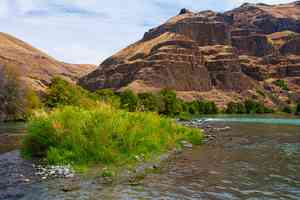

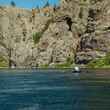
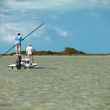

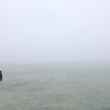
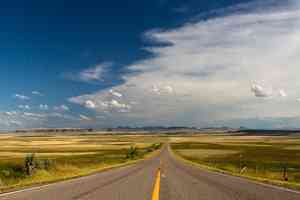



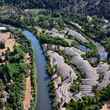
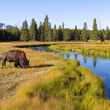
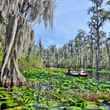
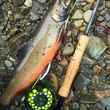
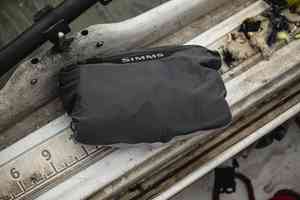
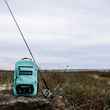
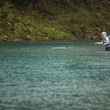
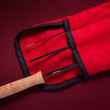
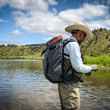



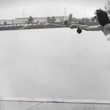
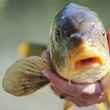
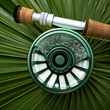

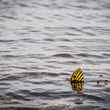
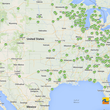
Comments